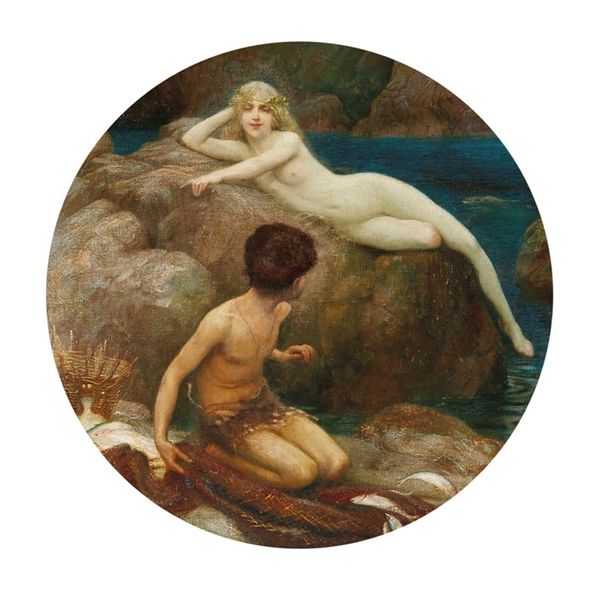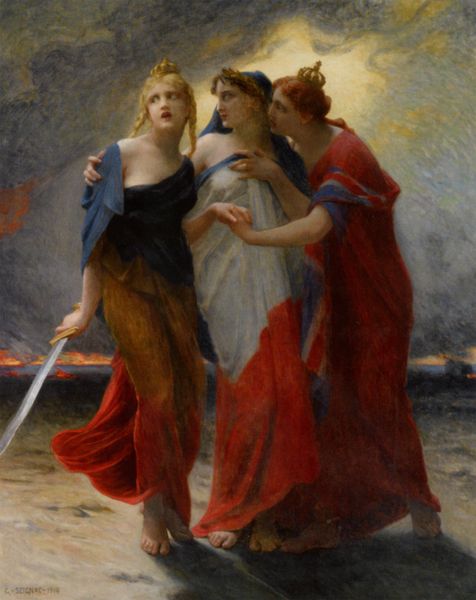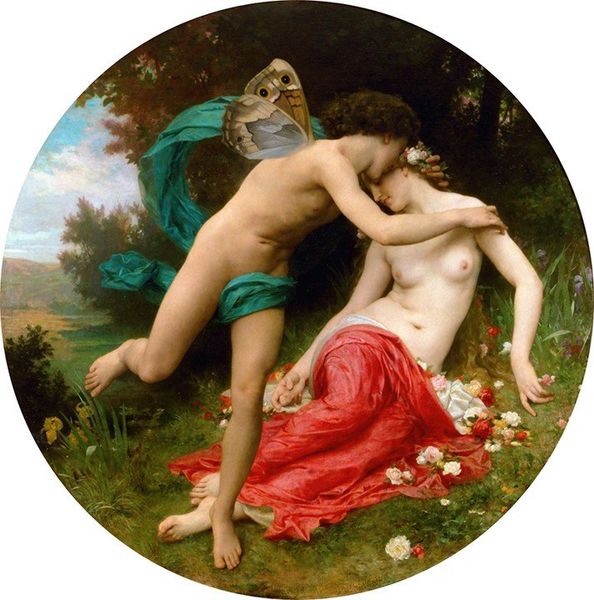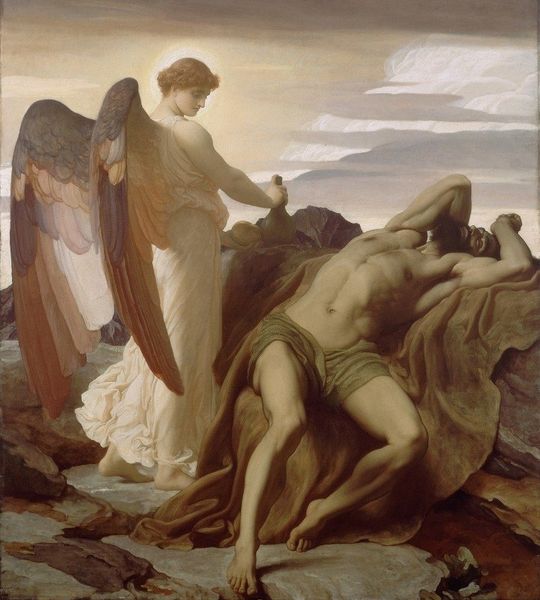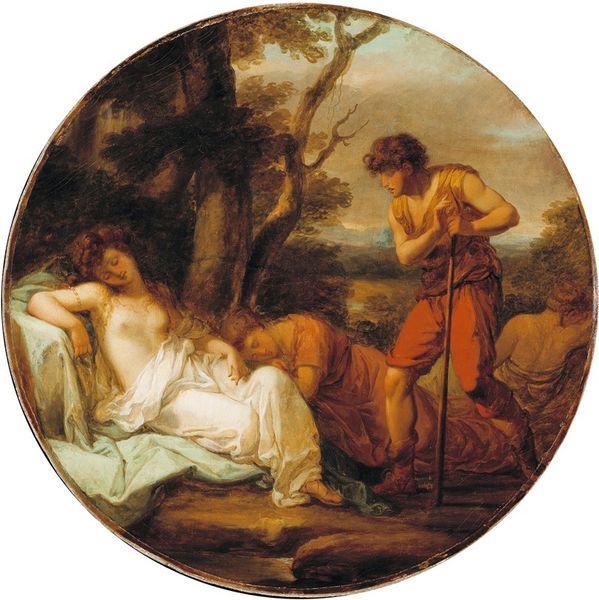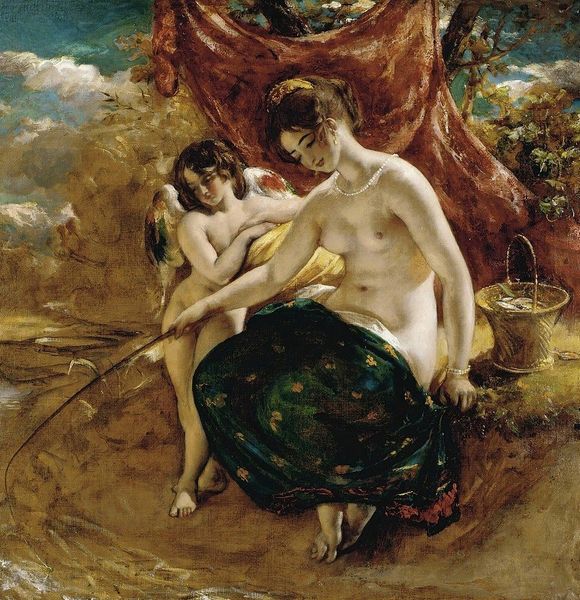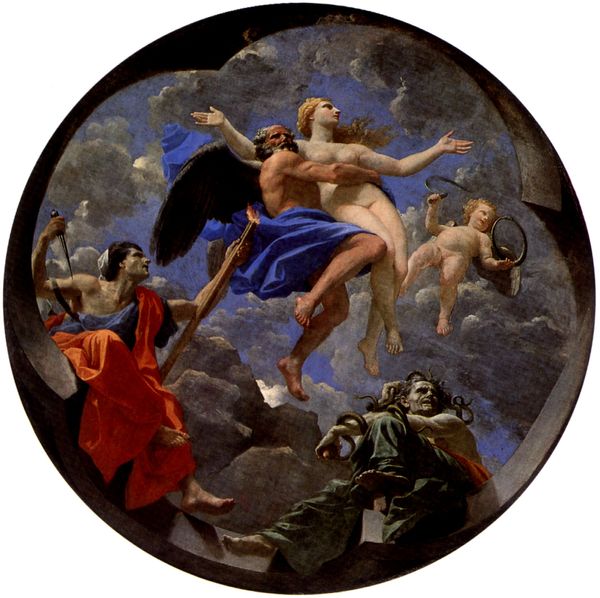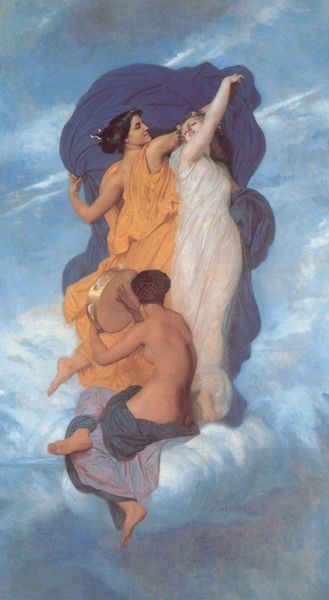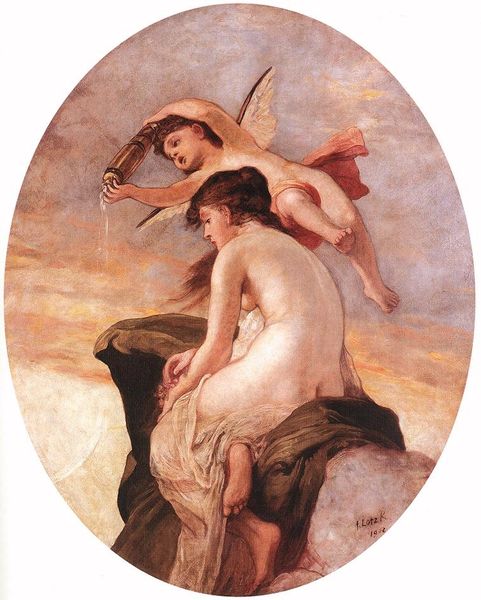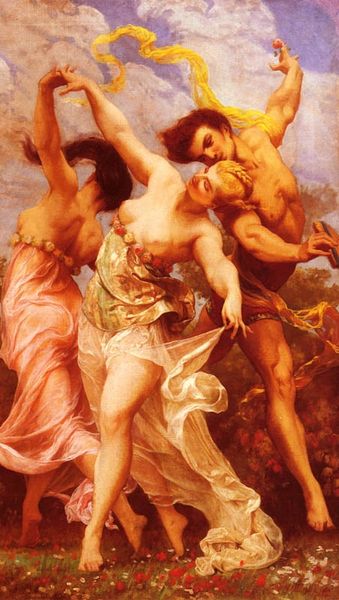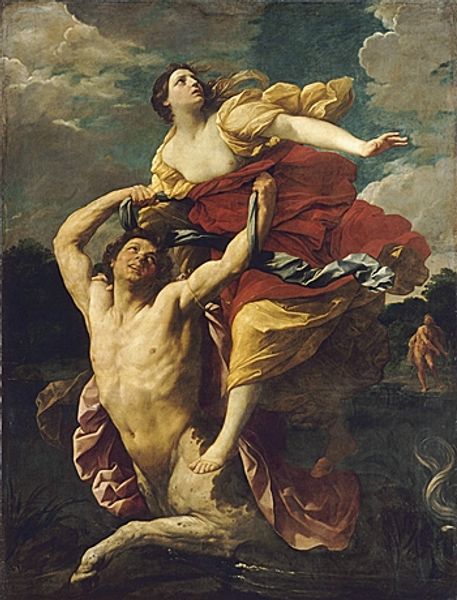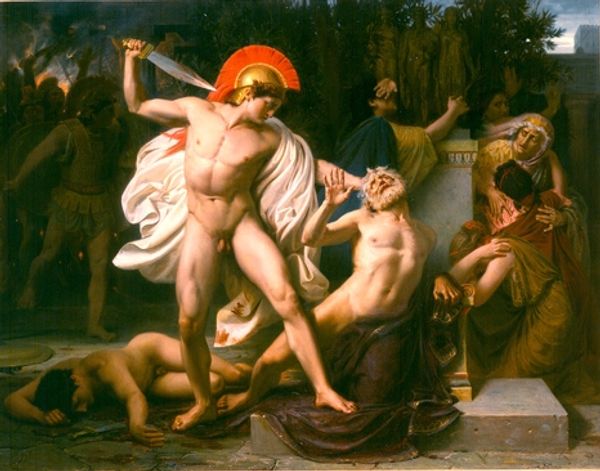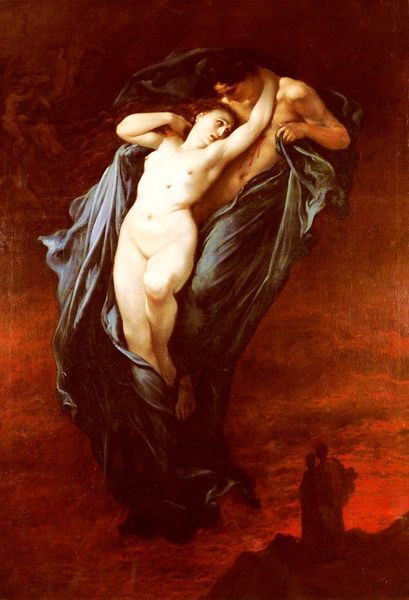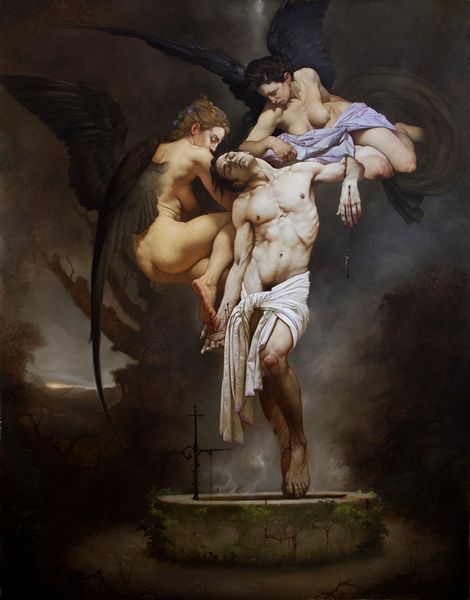
Copyright: Public Domain: Artvee
Frederic Leighton painted this monumental canvas, “And the Sea Gave Up the Dead Which Were in It,” towards the end of his career. Its grand scale and historical subject matter reflect the values of the Royal Academy, of which Leighton was president. Painted in England, this artwork alludes to a passage from the Book of Revelation, envisioning the end of the world, and signals the culmination of time, and the resurrection of the dead. Such a work inevitably engages with Victorian Britain's fraught relationship with religion in an increasingly secular age. Leighton presents an opportunity to explore the complex interplay between faith, doubt, and artistic expression in the late 19th century. Understanding its full meaning requires us to delve into the art criticism, religious debates, and socio-political anxieties that shaped Leighton's world. By examining these diverse sources, we can gain a deeper appreciation of how art reflects and refracts the forces of history.
Comments
No comments
Be the first to comment and join the conversation on the ultimate creative platform.
